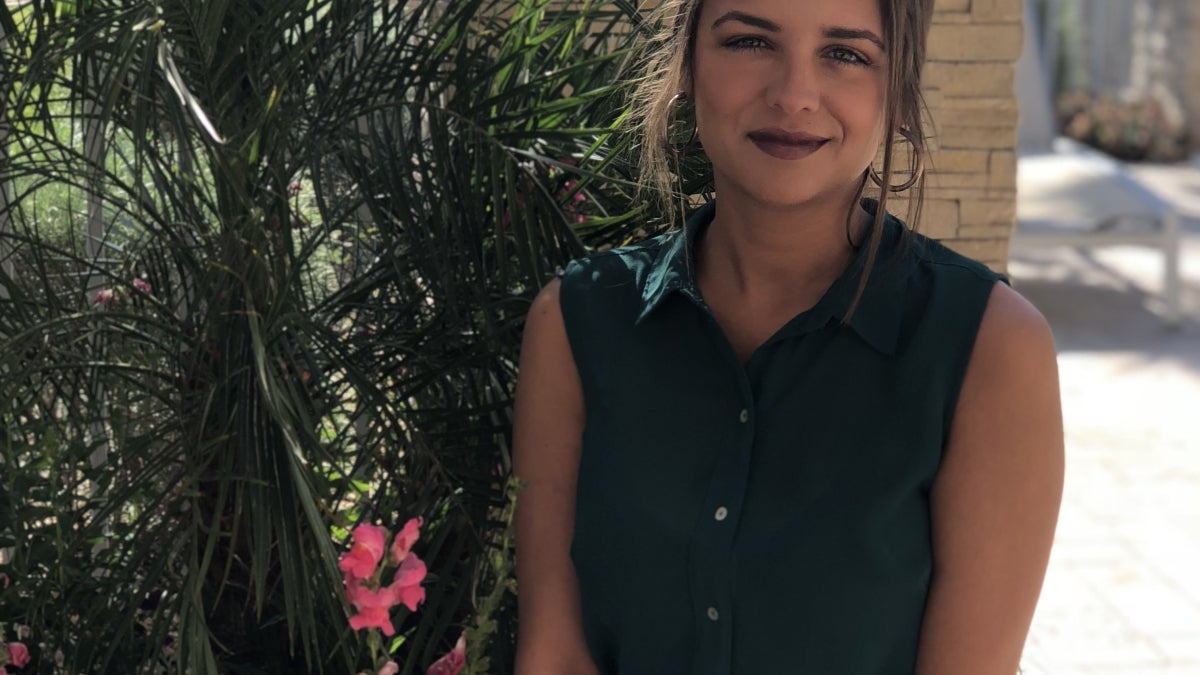Editor’s note: This is part of a series of profiles for spring 2018 commencement.
In elementary school, Sarah Collins first learned that fossil fuels are scarce resources we could eventually use up. This is some pretty deep stuff, even for a third grader. So it stuck, and that's why Collins came to Arizona State University's School of Sustainability to earn her bachelor’s degree.
After she graduates in May, Collins hopes to join the Peace Corps to work on environmental issues in the Philippines. She is also planning to pursue a master’s degree in public policy.
Question: What’s something you learned while at ASU — in the classroom or otherwise — that surprised you or changed your perspective?
Answer: I think most of us in the sustainability program start out feeling compelled to fix every environmental issue at any social cost, but it doesn’t work that way. I was such an environmentalist in the beginning, but my educational experience has completely changed my perspective of the world. For example, artificial fertilizers can be terrible for ecosystems and are a huge problem in the U.S. But you must look at the big picture and understand that there is a need to mass produce food to sustain population growth. You can’t just make people stop eating or stop reproducing, so you have to analyze other ways to solve the problems.
Q: What’s the best piece of advice you’d give to those currently studying (or interested in studying) sustainability at ASU?
A: Working full time, I’ve had a somewhat unconventional college experience. I never thought I was capable of balancing work and school, and I was giving up before I even started. What I learned is, you need to find a mentor or role model who has had the same challenges you’ve had and reached your same goal. If you can find someone who represents proof that you can do this, you will find a way to make it your reality too. Maybe you already have this person in your life, or maybe you need to hunt them down. One of the best feelings is reaching a goal and thanking the people who helped to get you there.
Q: How did the School of Sustainability prepare you, personally and professionally?
A: Who I am now is very different from who I was when I first began this journey. The School of Sustainability has challenged me in so many ways that have made me a better person. In a personal sense, I’ve become open-minded and understanding, because you have to be in this field. Professionally, I feel advantaged because of the professional development training we were required to have. We were taught how to network, maintain resumes and so much more. [The school] doesn’t just work to educate us, they strive to prepare us for the workforce and professional settings.
More Environment and sustainability

Rethinking Water West conference explores sustainable solutions
How do you secure a future with clean, affordable water for fast-growing populations in places that are contending with unending…
Meet the young students who designed an ocean-cleaning robot
A classroom in the middle of the Sonoran Desert might be the last place you’d expect to find ocean research — but that’s…

From ASU to the Amazon: Student bridges communities with solar canoe project
While Elizabeth Swanson Andi’s peers were lining up to collect their diplomas at the fall 2018 graduation ceremony at Arizona…


